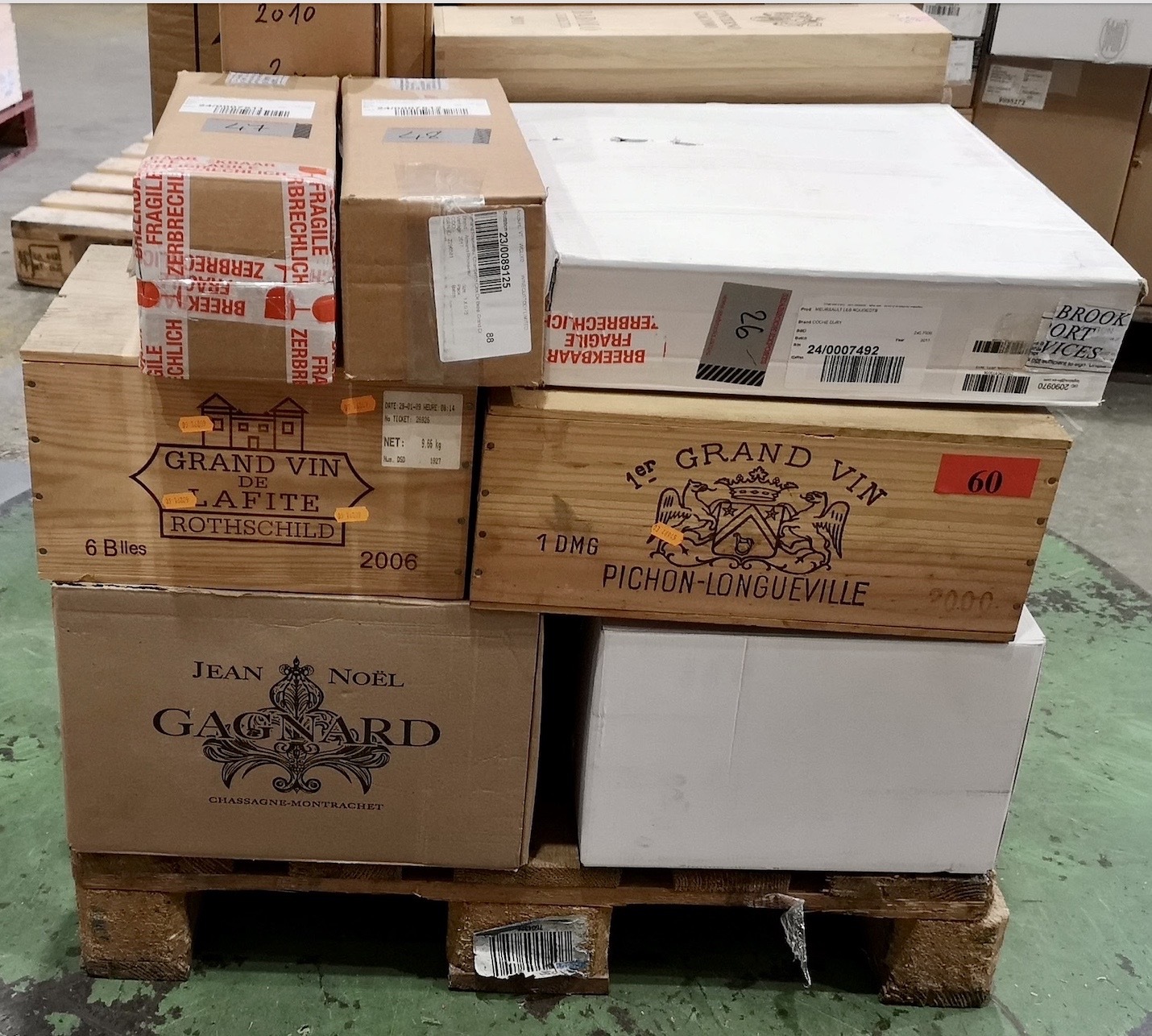|
“Provenance” is the most important concept in the fine wine market. A catch-all term that refers to whether the wine is genuine plus how well it has been stored. “Pristine'' (also called Standard) is an industry definition of a case of wine in a condition that is interchangeable with other cases from the same producer, make and vintage.

The importance of these terms cannot be overstated. Pristine refers to a lot more than major issues such as leakage. A Pristine case of wine cannot have even the smallest markings or cuts on labels or capsules. There are specific measurements of liquid in the neck of both Bordeaux and Burgundy style bottles determining the level of dehydration. Furthermore, no added labels on the back or front (i.e. - US strip labels, importer labels, etc.) and the cases must be original without "re-packaging" and without major cracks or damage. Cases of wine that are not Pristine will simply fetch a lower price on the secondary market as if they were bespoke products. The tiniest imperfection can be costly!
For drinkers, such imperfections can offer bargains. Stained or soiled labels from excess humidity do not indicate the wine within has been spoiled. A slight damage to the capsule or case, or a tear in the label should not, in theory, have any effect on the quality inside the bottle. Such aesthetic flaws can be an opportunity to drink something special at a discounted price. However, low fills or a clean label that is falling off, can be a result of a lack of humidity. In this case, the cork could have dehydrated, allowing too much oxygen to enter the bottle, causing faults.
Import labels can indicate extensive global travel which is a risk. For example, European wines offered for sale in the UK with US Strip Labels means the wine has most likely travelled across the Atlantic and back again. Aside from the accumulated miles, there are questions about how the wine was stored and transported during these journeys. Was the wine transported during winter or summer? Was the wine stuck in a customs warehouse without air conditioning for days, awaiting clearance? Were there any temperature controls in the trucks used to move wine from destination to destination? Generally speaking, the more the wine travels, the larger the cumulative risks become.
The proliferation of fake, high-end wines in recent years has been a shock to the industry, even inspiring a Netflix documentary about an infamous wine forger. It has become imperative that consumers ask about a wine’s Provenance, especially for older bottles kept in personal cellars, or for wines offered in auction. Furthermore, buyers need to know non-Pristine cases should be offered at a discount, and generally aren’t suitable for investment.
|